Hey there! Change is often a necessary part of growth, and we're excited to share some important updates regarding our organizational structure. As we adapt to the ever-evolving landscape, these changes are designed to enhance collaboration and streamline our efforts toward achieving our goals. We invite you to read more about the specifics of these adjustments and how they will benefit our team moving forward!

Clear and concise subject line
Organizational Restructure Announcement: Key Changes Ahead The upcoming organizational restructure aims to enhance efficiency and align with strategic goals. This restructure involves the reallocation of resources within departments, impacting roles and responsibilities significantly. Stakeholders will observe changes in leadership hierarchies, with a focus on promoting collaboration across teams. Key performance indicators (KPIs) will be redefined to reflect new objectives, ensuring alignment with corporate vision. Employees are encouraged to attend an informational briefing scheduled for November 15, 2023, at the downtown conference center, where further details and timelines will be provided. Open communication will be prioritized throughout this transition to address any concerns and facilitate adjustments in workflows.
Purpose of the restructure
The organizational restructure aims to enhance operational efficiency within the corporate framework, addressing the challenges faced by departments such as Sales, Marketing, and Human Resources due to increased market competition. Key objectives include streamlining decision-making processes, fostering innovation, and improving employee collaboration across teams. This restructuring initiative aligns with the company's strategic goals for the fiscal year 2024 and positions the organization to better adapt to rapidly changing industry dynamics. Stakeholders can expect clearer role definitions and optimized resource allocation, ultimately fostering a more agile and responsive organization ready to meet customer demands effectively. Long-term benefits include enhanced organizational agility and sustained growth potential in both domestic and international markets.
Impact on employees and roles
Organizational restructuring impacts employee roles significantly, often leading to changes in job responsibilities and reporting lines. As companies like IBM execute major transformations to adapt to market demands, positions may be consolidated or eliminated, creating uncertainty among staff. Employees may find their roles redefined, requiring them to acquire new skills or adapt to different team dynamics. During such transitions, support programs, such as training sessions or employee assistance programs, can play a critical role in helping individuals navigate these changes effectively. Communication about these shifts is essential, ensuring employees understand the reasons behind the restructure and how it affects their future within the organization, ultimately influencing morale and productivity.
Timeline and implementation details
The recent organizational restructure aims to enhance operational efficiency and improve team dynamics within the organization. The timeline outlines a phased approach beginning on January 15, 2024, with an initial assessment period lasting three weeks, focusing on departmental workflows and resource allocation. Following this, new roles and responsibilities will be communicated on February 5, 2024, ensuring clarity for all team members. Implementation will commence on February 19, 2024, with dedicated training sessions for affected employees, further scheduled throughout March 2024. The entire process is expected to be completed by April 30, 2024, allowing for a seamless transition and ensuring that all staff are well-prepared for their new functions. Continuous support resources will be available, including an FAQ section and dedicated HR representatives for inquiries during the transition.
Support and resources available
Organizational restructuring often creates uncertainties among employees, leading to the need for support and guidance during transitions. Human Resources departments typically offer resources such as counseling services and informational workshops to help staff navigate changes. Additionally, mentoring programs can be implemented to facilitate peer support among employees during the adjustment period. Online resource hubs, which include FAQs and updated policies, serve as valuable tools, ensuring staff remain informed and engaged. Regular town hall meetings, conducted to address concerns, provide direct communication channels between leadership and employees, fostering a sense of community amidst change. Training sessions focusing on skill development can also enhance employee confidence in adapting to new roles or responsibilities.

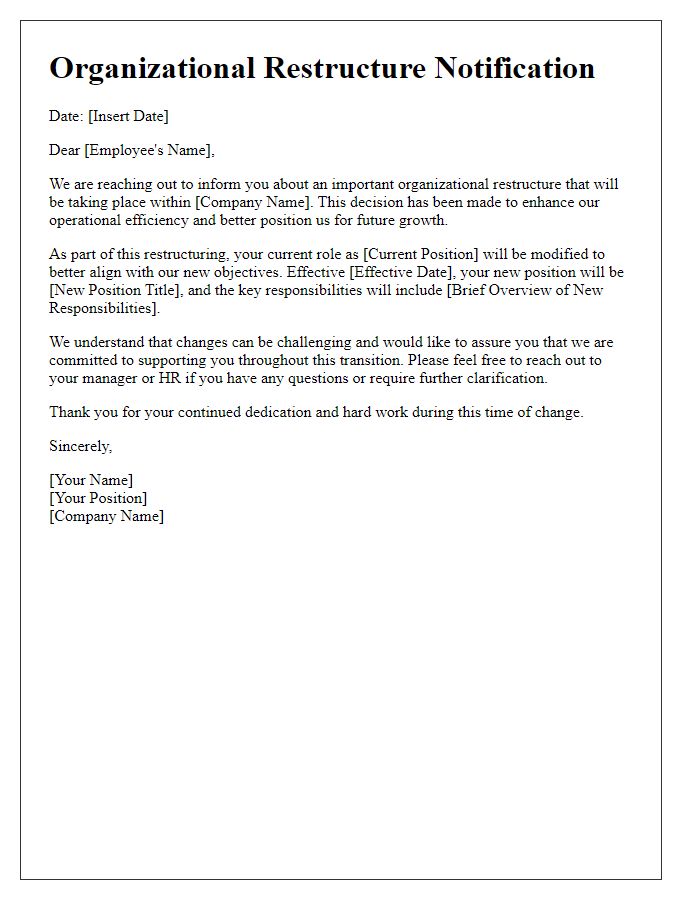
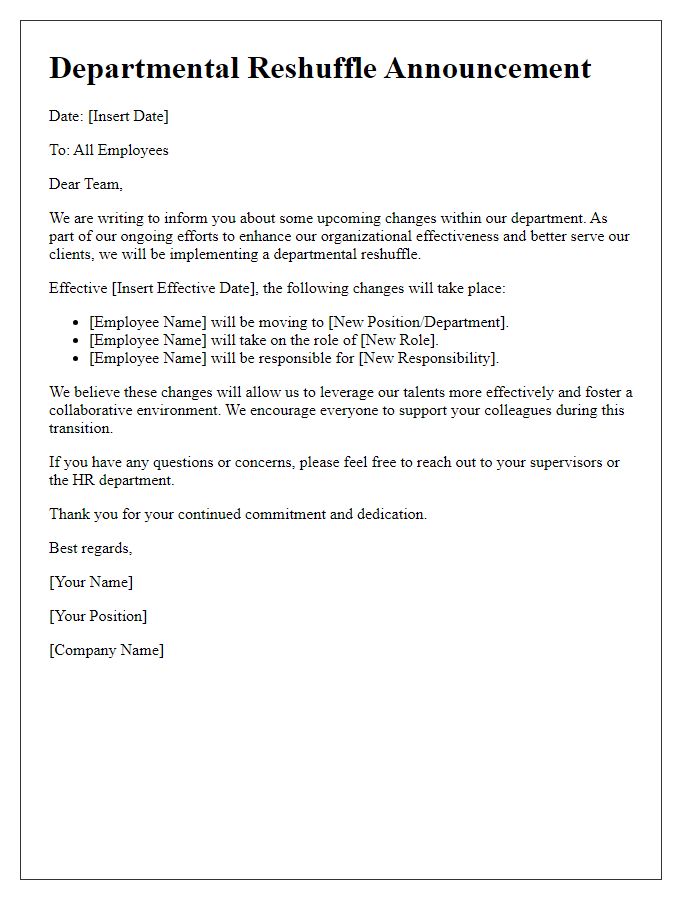
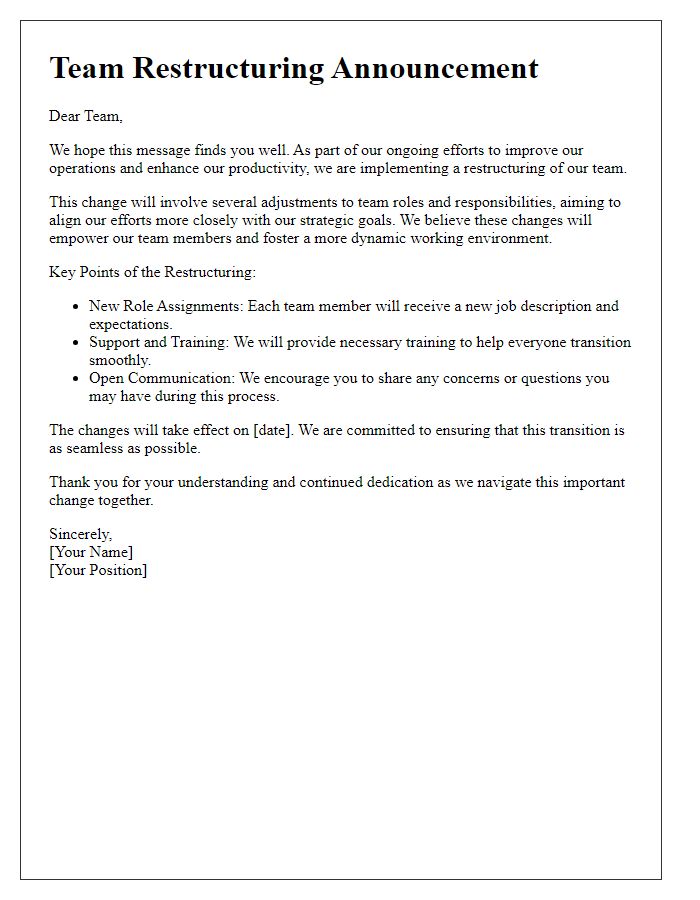
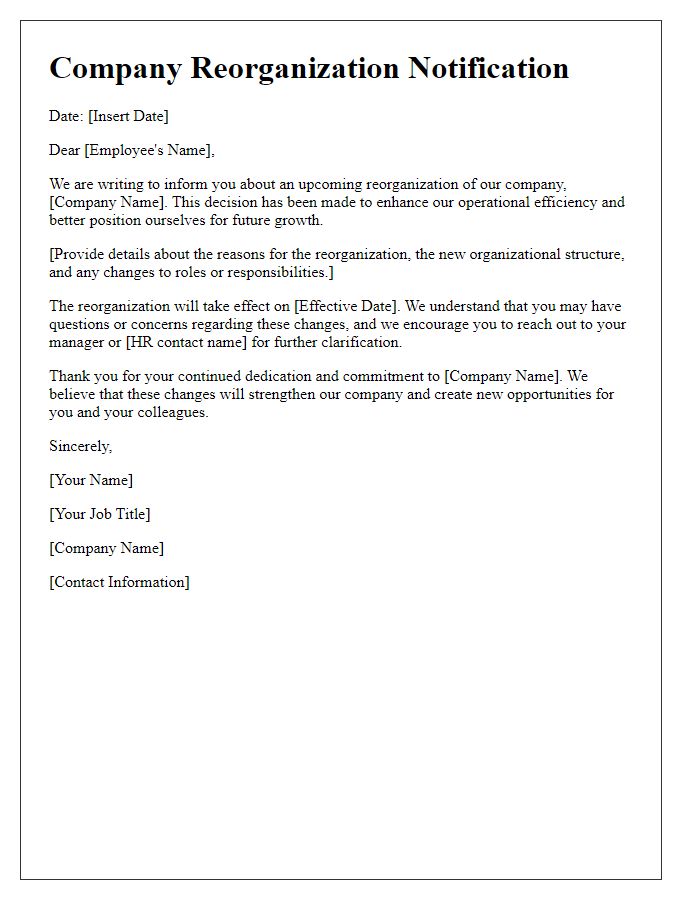
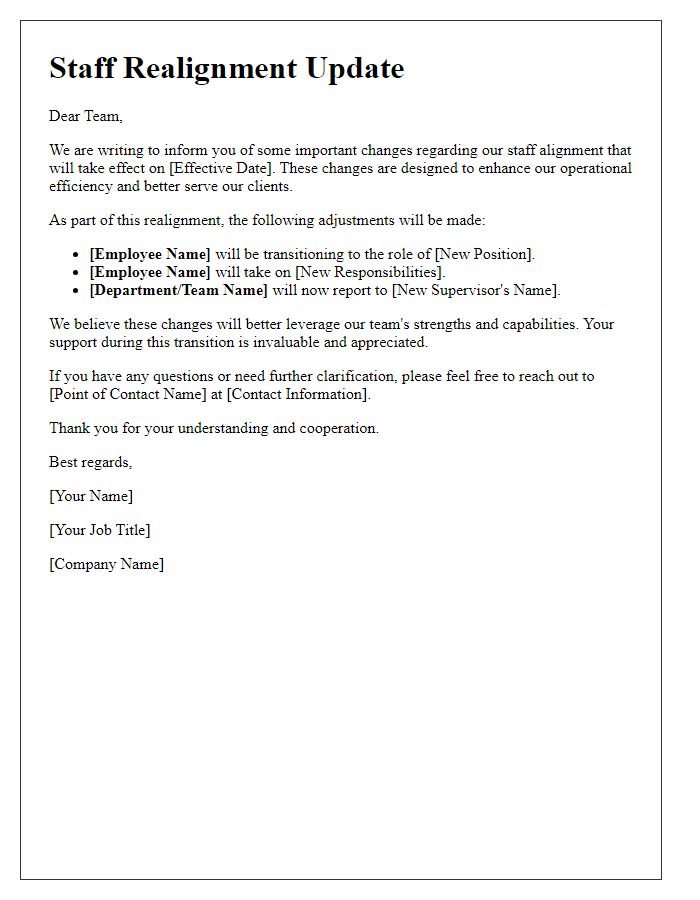
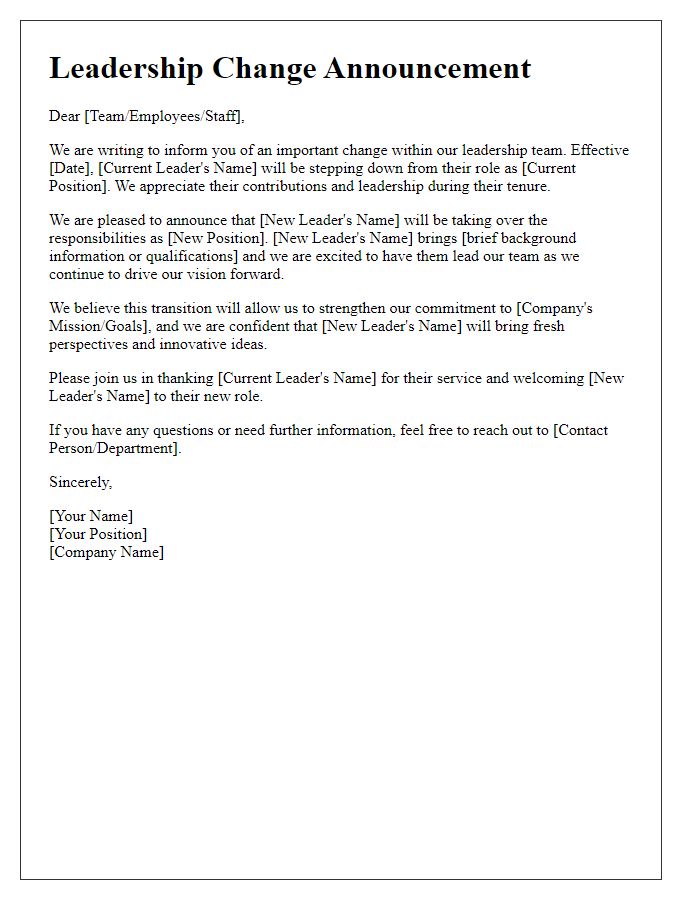
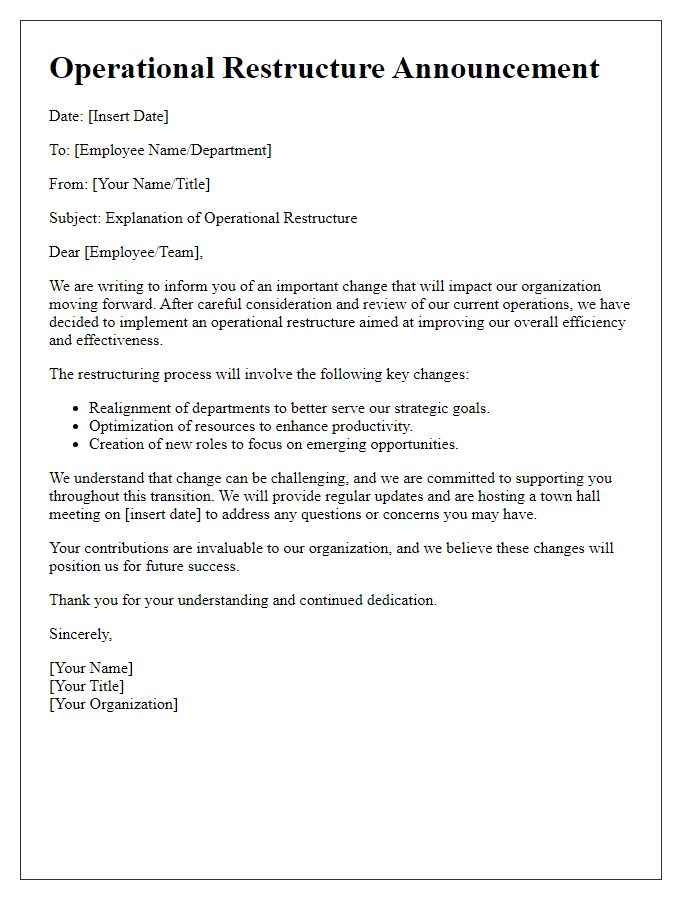
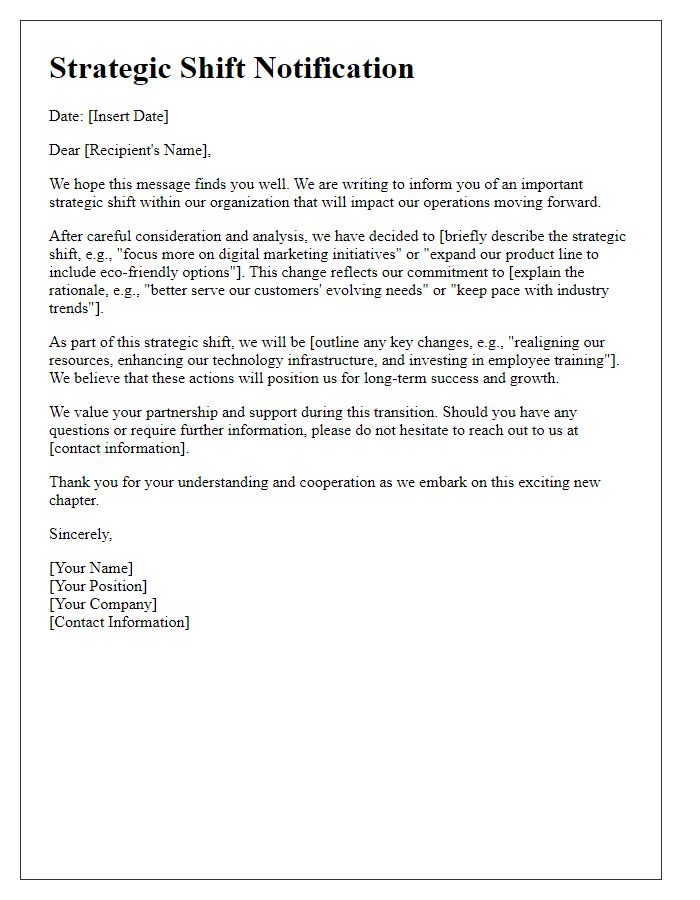
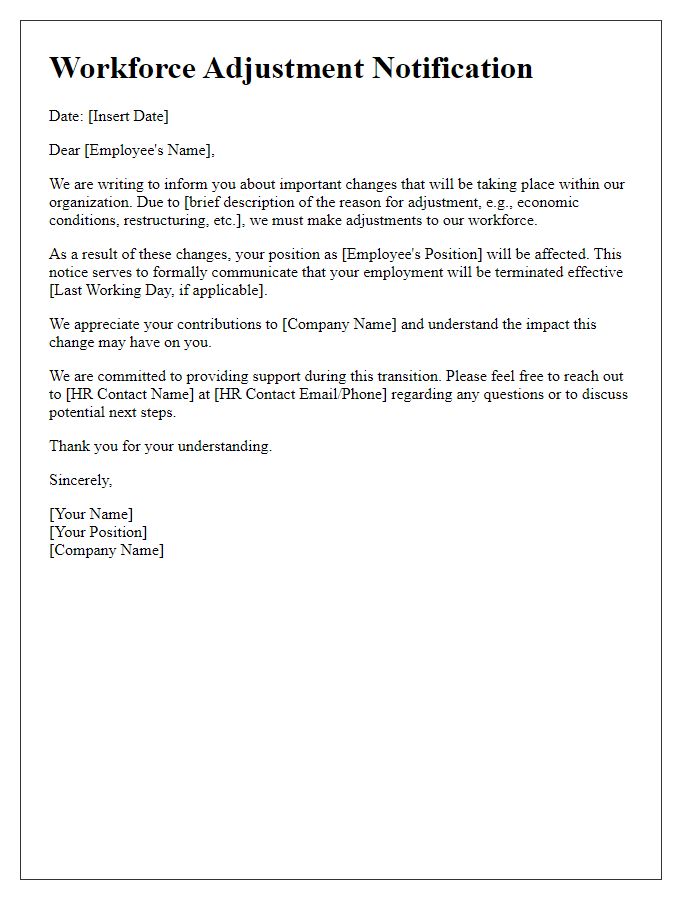
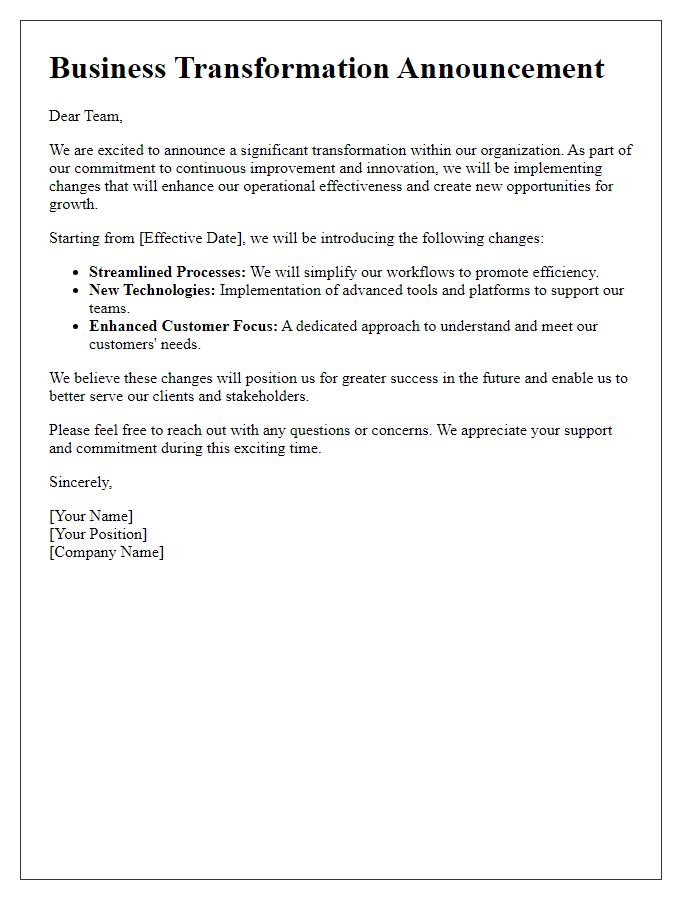


Comments